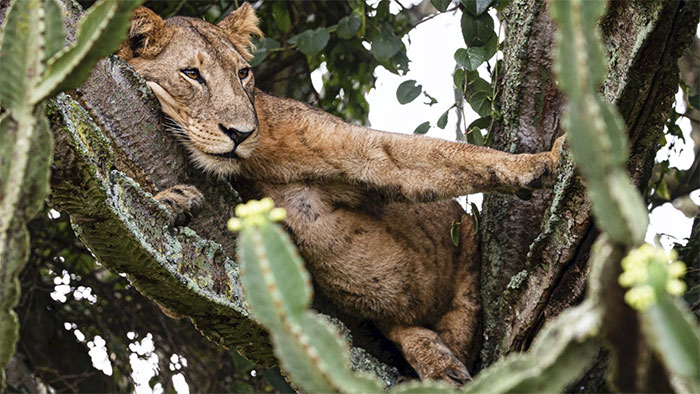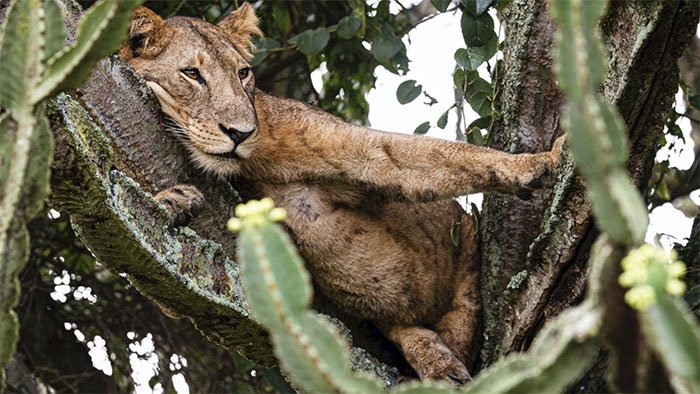A rare sight: Lions flock to sleep on a poisonous thorn
A rare sighting has recently been captured in Uganda (Africa) when a leisurely group of lions resting on a poisonous thorn-covered branch.
According to FOX News , during the African expedition, photographer Julia Sundukova (41) took these rare photos.

The lion lies on the jackal tree - (Photo: Sundukova).
Sundukova was surprised to see the female lions resting for a nap on the big tree , a giant cactus-like plant.
According to the Sabi Sabi Nature Reserve, the leaves of the tree are large, succulent, filled with extremely toxic resins. With just a small amount of latex exposure, many animals can get blisters, have painful swelling or be blind if the pus gets into their eyes.
"Photo viewers will not be able to believe the lion chose this poisonous tree to take a lunch break. They don't look very comfortable but still try to enjoy lunch here," Sundukova told South West News Service .

Lions on a poisonous tree - (Photo: Sundukova)
Sundukova explained that the lion's skin is quite thick, which can help them avoid the latex of the big tree. "This scene is very beautiful , " Sundukova said.
In Africa, many species of lions are in serious decline.
The species of Barbary lion (Panthera climbs) is only about 1,400 (about 900 in Central and West Africa and about 500 in India) and the lion of Hao Vong (Panthera climbs melanochaita) about 17,000-19,000 in East and South. Africa (data recorded in 2015).
Globally, the number of lions began to decline in the 20th century due to the excessive hunting. In the early 20th century, the world had about 500,000 children. By the middle of the 20th century, they had decreased to 200,000 and now fewer than 20,000.
- Video: A close-up of the horrifying battle of lions
- Lion fish threatens the Atlantic Ocean
- Birds have lions like lions
- The gentleman's medicine
- Crocodiles are torn by lions because they dare to loot their lures
- Discovered rare white killer whales
- Dog breeding tiger lion
- Not only rhinos and tigers, African lions will soon disappear
- Bloody hippos with lions
- Sea lions kill, eat baby meat that makes experts confused
- Shocking discovery about the little-known lion
- The reason people have to sleep
 Animal 'suffering' after hibernation
Animal 'suffering' after hibernation Why do goats climb well?
Why do goats climb well? Scientists were surprised to see chimpanzees eating turtles
Scientists were surprised to see chimpanzees eating turtles Giant catfish died deadly due to drought in Thailand
Giant catfish died deadly due to drought in Thailand